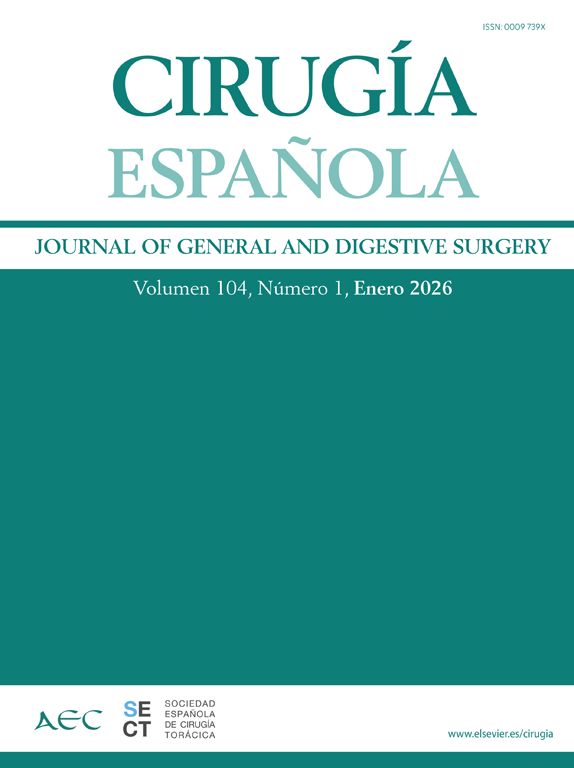Pacientes y métodos. Se revisan los casos de 15 pacientes con tumores carcinoides digestivos tratados en los últimos 6 años, valorando su localización, clínica, diagnóstico, tratamiento y evolución.
Resultados. La edad media de los pacientes fue de 44,9 años, y la distribución por sexos fue similar. Ningún paciente presentó síndrome carcinoide y sólo dos de ellos (13,3%) fueron diagnosticados de tumor carcinoide antes de la cirugía. Todos los pacientes fueron intervenidos quirúrgicamente: 11 de urgencia (73,3%) y cuatro (26,6%) de forma electiva. La localización más frecuente fue el apéndice ileocecal (10 casos), seguida del estómago (2 casos), intestino delgado (2 casos) y páncreas (un caso). Se produjeron metástasis hepáticas en uno de los pacientes. No ha habido mortalidad y han sido controlados 13 pacientes.
Discusión. El tumor carcinoide es la neoplasia más frecuente del intestino delgado, si bien su localización habitual es el apéndice. Su diagnóstico suele realizarse tras el estudio de la pieza resecada, ya que el tumor habitualmente no ofrece sintomatología típica. El tratamiento consiste en la exéresis amplia del tumor primario y de sus metástasis si es posible, con un tratamiento adyuvente quimio, hormono y radioterápico si se precisa
Patients and methods. A review was made of 15 patients with gastrointestinal carcinoid tumors treated over the past six years, focusing on their localization, clinical signs, diagnosis, treatment and outcome.
Results. The mean age of the patients was 44.9 years, and the distribution according to sex was similar. None of the patients presented carcinoid syndrome and only two of them (13.3%) were diagnosed as having carcinoid tumor prior to surgery. All the patients underwent surgical treatment, 11 (73.3%) under emergency conditions and 4 (26.6%) electively. The most common site was the appendix (n = 10), followed by stomach (n = 2), small bowel (n = 2) and pancreas (n = 1). One of the patients presented liver metastases. None of the patients have died and 13 underwent follow-up.
Discussion. The carcinoid tumor is the most common neoplasm in the small bowel, although it is usually located in the appendix. The diagnosis is usually based on the histological study of the resected tissue since the lesion rarely provokes a characteristic symptomatology. Treatment consists of wide excision of the primary tumor and of its metastases if possible, followed by adjuvant chemotherapy, hormone therapy and radiotherapy, if necessary.






